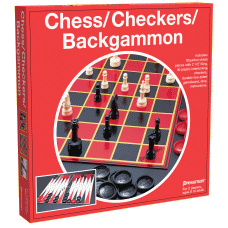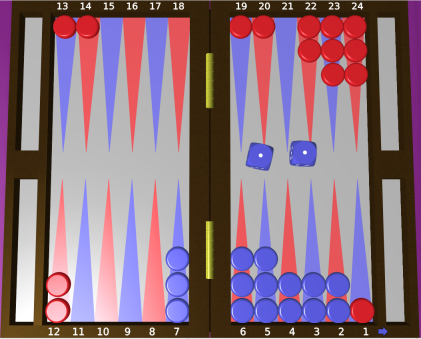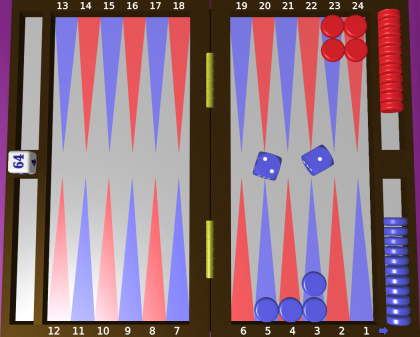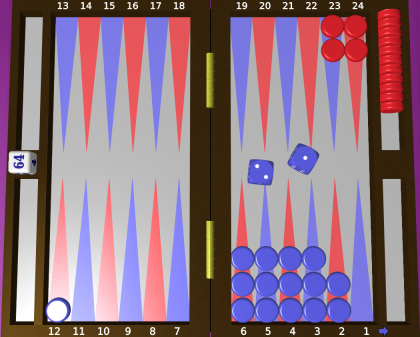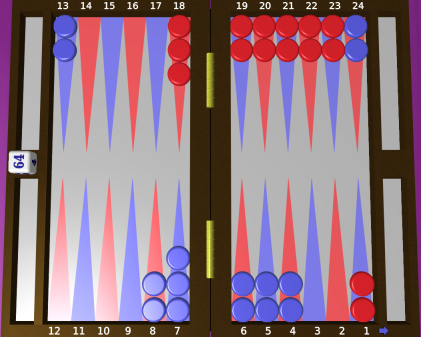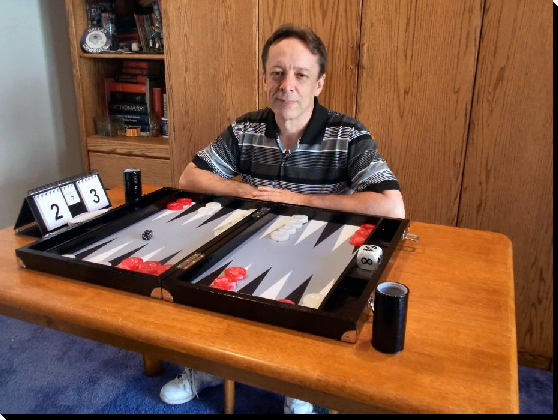Speaking of doubling, I'm sure I was also fascinated with the
concept
that, although it might be proper for a player to double, it might
also be proper for his/her opponent to accept the
double! I suspect I first would
have believed that to be contradictory! But I soon learned why
it was not.
As
I started to learn all of these tactics and
concepts and ideas, it didn't take very long before I was hooked! Backgammon
was a great game!
Match equities, doubling cube
windows, advanced anchors, priming battles, blitzes, duplication,
diversification, pip counting, free drops, gammon vigorish, holding
games, priming games, running games, back games, ace-point games, pay now or pay
later, rollouts, losing one's market, re-circulating checkers,
mandatory doubles, slotting points...
Wow! Who knew!
You don't always want to hit your opponent's blots! You don't
always want to roll high numbers! You don't always care if
your own blots are hit! The best play over the board often
depends upon the score of the match, or even if you're
playing a match (vs. money play) at all!
So yes, although backgammon does use dice and thus does
have an element of luck to it, make no mistake - it's a game of
skill. In a match to x number of points, the more skillful player
might certainly lose a game or two, but will be a big favorite to
win the match. The longer the match, the greater the
likelihood the stronger player will win it.
Here's a quote I recently came across, that I'm fond of:
Backgammon: the right balance between a board game where
there’s real skill in maneuvering the pieces - which of course
it has in common with chess - and a gambling game like poker,
where you’re betting on probabilistic outcomes. It’s a very nice
merger of the two. (Bill Robertie)
Yes,
a very nice merger of the two.
Backgammon is essentially a
gambling game, and it's a GREAT gambling game, but it's also the
only gambling game I know of that is (almost) as much fun to play if
there are no stakes involved at all. (Poker, for example, is very
boring if you're not playing for money.) Playing backgammon as a kid
we rarely if ever played for money and yet still had a great time
playing. We just
treated it as another board game, not as a gambling game. (But yes, it's even more
fun as a gambling game.)
So that's my little backgammon story.
In fact, I'm still learning and improving, almost 40 years
after my brother Bill taught me how to play. Sometimes I regret not
REALLY getting into it many years ago, and studying it with the same
intensity that I've studied chess. (Chess is my other passion.) In
MANY ways, backgammon is MUCH more "fun" and "exciting" than chess.
Several years ago I visited a backgammon
tournament held here in Los Angeles, just to see what it was like. I discovered a backgammon
tourney is nothing at all like a chess tourney! At the backgammon
tourney, everyone seemed to be enjoying themselves and having a
great time.
In fact, they were chatting with each other during their games,
something that just isn't done at a chess tournament! (In chess
tournaments there is no talking in the playing room.)
Here's a
short article by Phil Simborg, about skill and luck in
backgammon. Also, I'm sure you will enjoy this rather lengthy but
very
entertaining story about how
backgammon was determined to be a game of skill in a courtroom trial.
|
